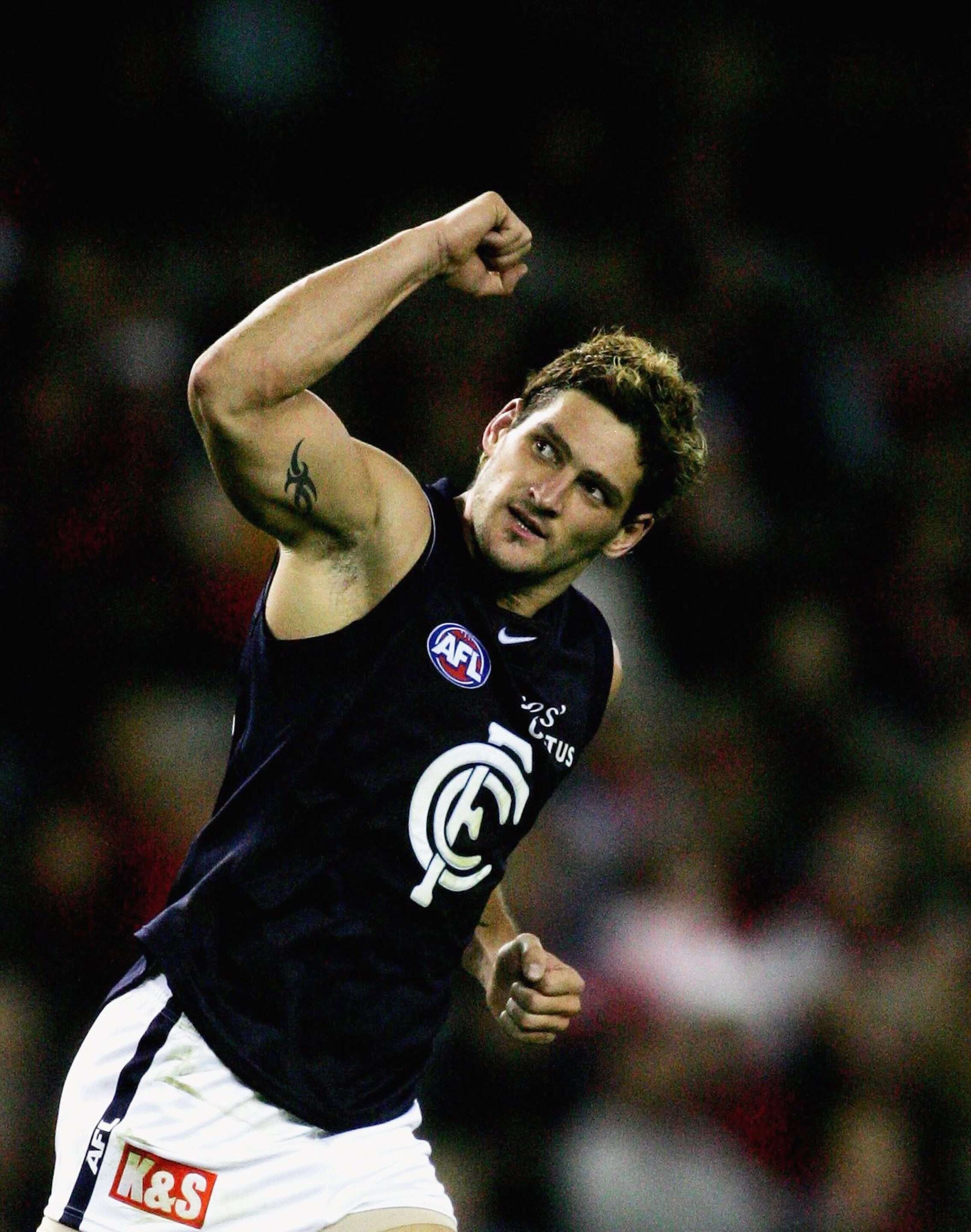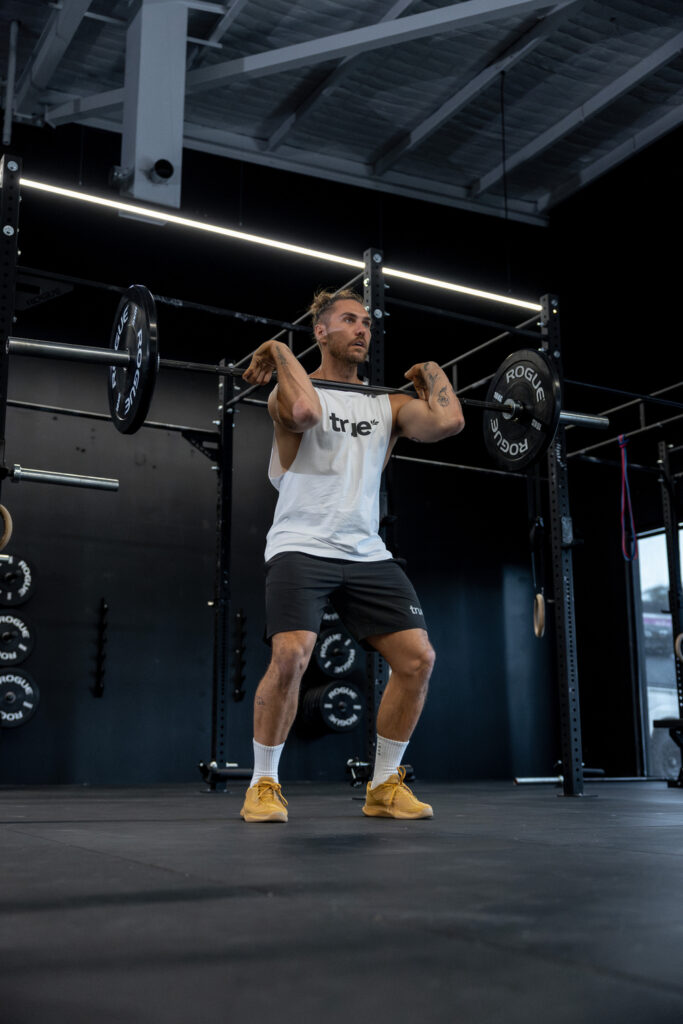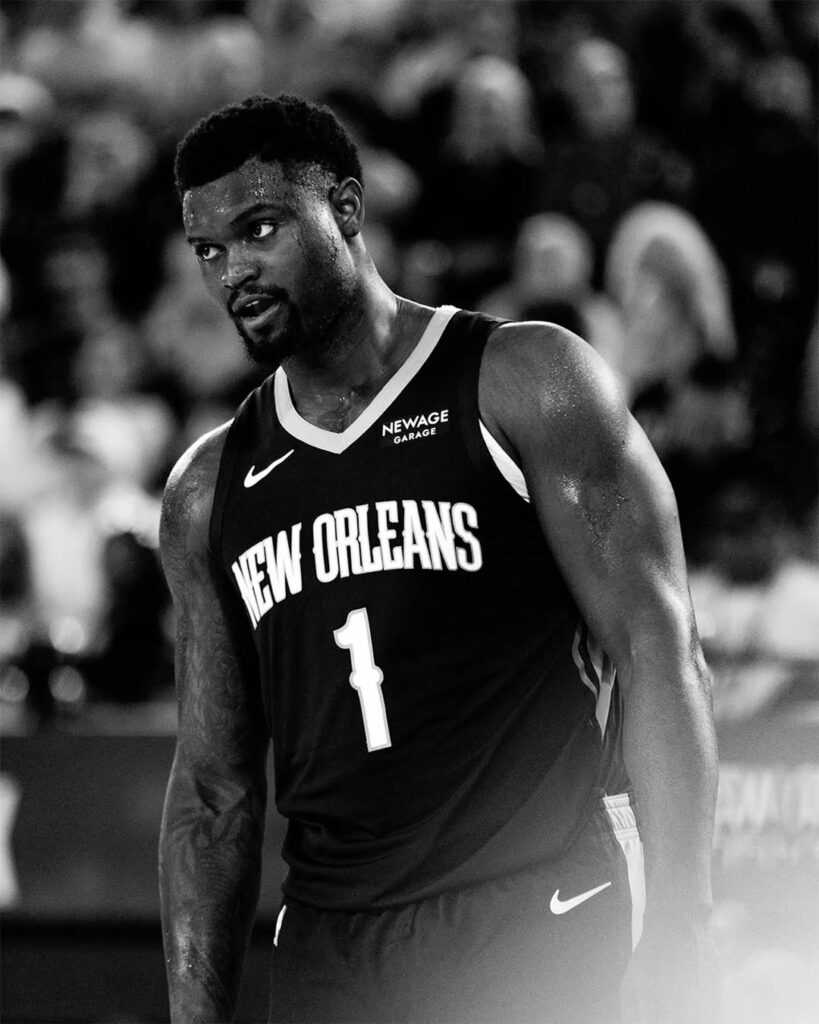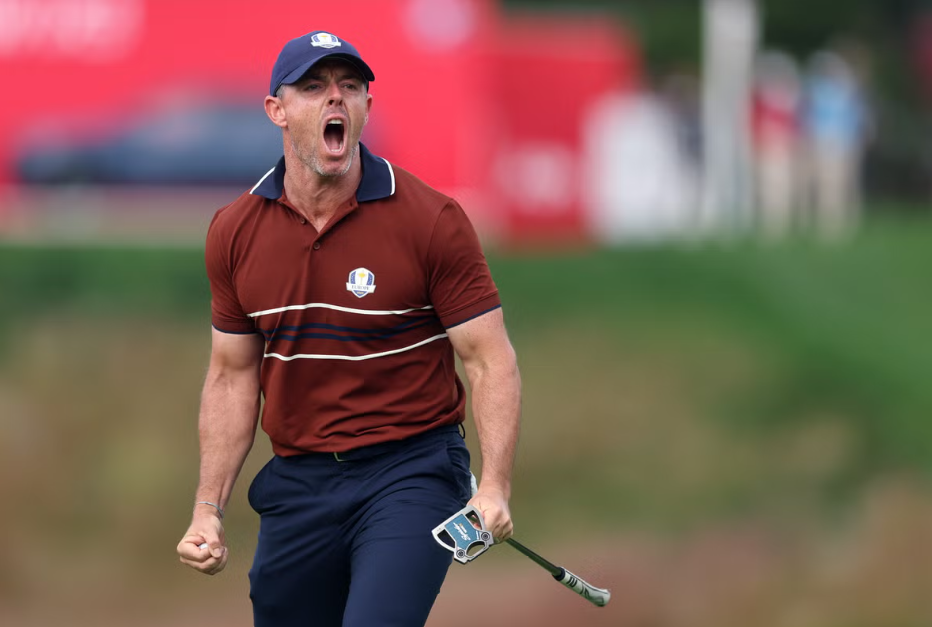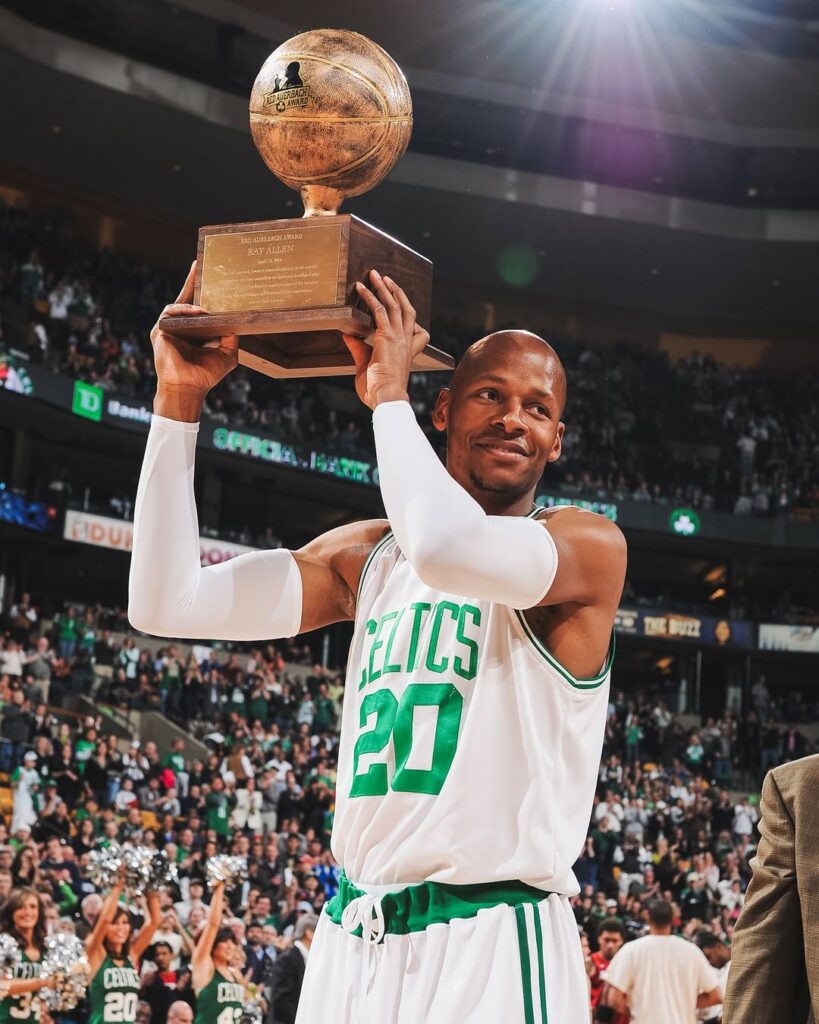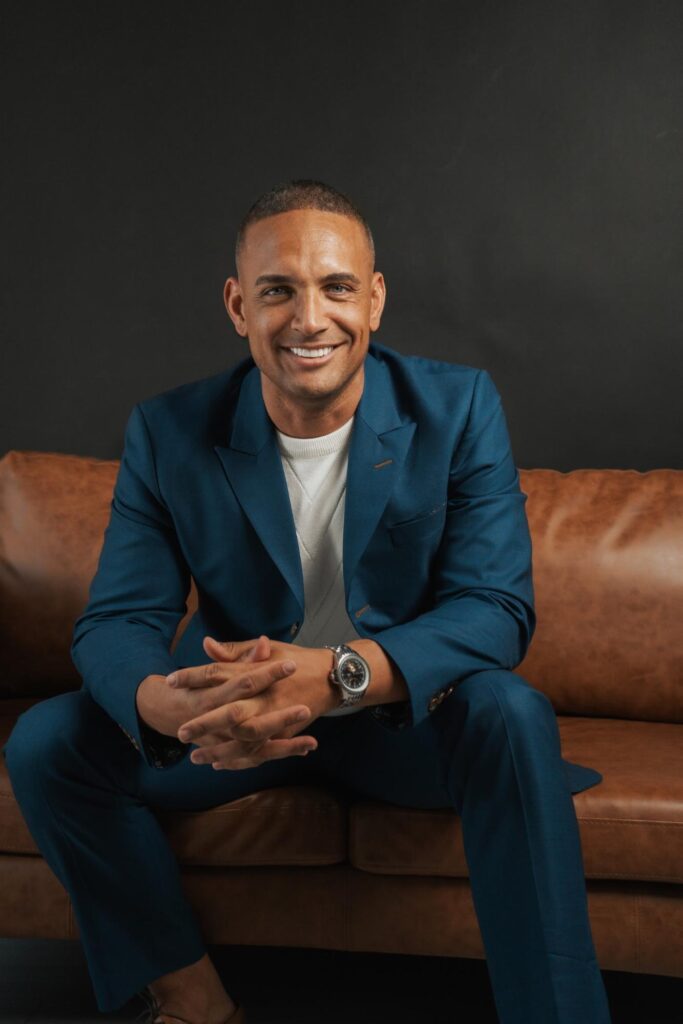BRENDAN FEVOLA WAS once the AFL’s most electrifying showman. A freakish goal-kicker, a headline magnet if there ever was one, and a man who embodied the larrikin spirit of early 2000s footy culture. But behind the countless goals, handful of Coleman medals and the media circus that followed his off-field exploits, there was more going on than what we saw in the news. Fevola’s journey with mental health, which often unfolded in the public eye, has been a long road to self-acceptance and is evidence of an uncomfortable truth about the pressures of masculinity.
“It’s a tough question,” Fevola says now, reflecting on how he treated his mental health in his playing days. “Back when I was playing, we had to be strong and tough and hard and we couldn’t really speak up too much or we’d get called weak.”
In many ways, Fevola was a product of his era. Vulnerability was – and often still is – seen as weakness, especially in the testosterone-charged world of professional sport. As a result, he learned to bury his feelings. “You would keep a lot of things inside because you’re afraid to express yourself,” he says. “But I think that going through that experience, ending up in a clinic and being able to work through all that stuff put me in good stead now where I know that speaking up is not a sign of weakness.”
For Fevola, the turning point didn’t come with a triumphant comeback to the AFL, but behind closed doors, in a mental health facility. Even there, away from the prying eyes of the public, Fevola was still hounded by the cameras. “I remember when I was in a mental facility for 70 days, they had cameras there trying to take photos and get shots of me,” he recalls. “I got sacked by my footy club while I was in a mental clinic. It was hard. I don’t think that could happen now.”
That period, Fevola says, was difficult and humiliating. But it planted the seed for introspection. With the help of his family, Fevola began to reckon with the emotional repression that had defined so much of his life and career. “The way I was dealing with it, that didn’t help my footy career. It didn’t help anything I did for the past 15 years,” he admits. “But now that I’ve gotten older and gone through those experiences, I feel like they’ve helped me to be able to express my feelings verbally.”
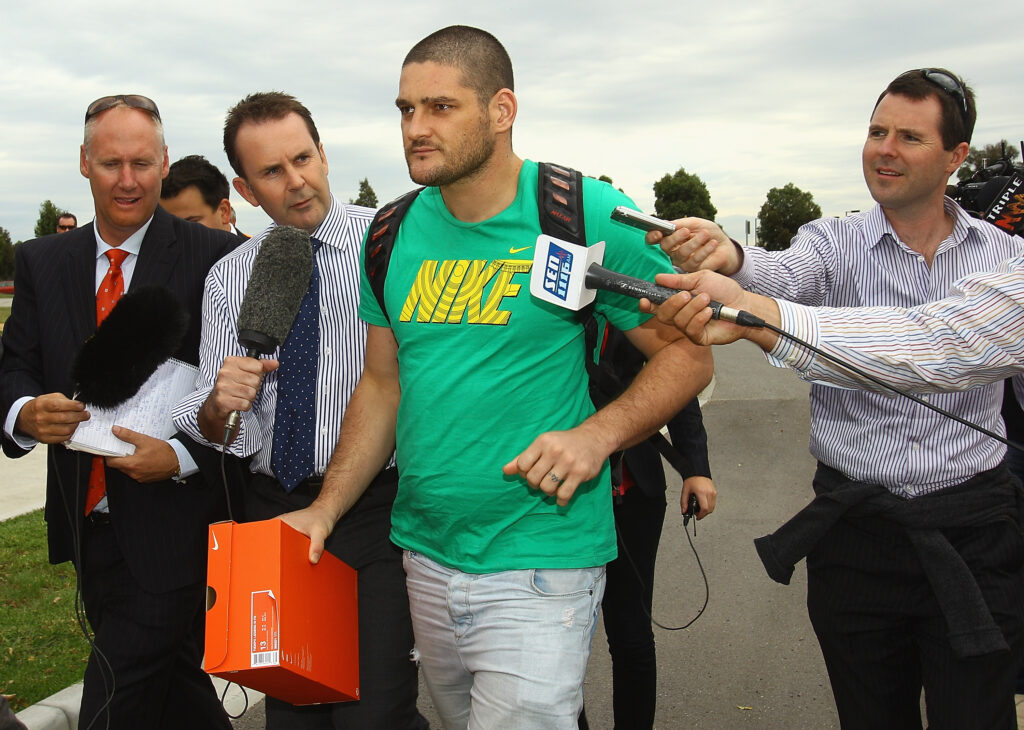
Now 44, Fevola is in a very different place. He’s more open with himself and has become an advocate for creating spaces for others to speak up, particularly fathers from his generation who, according to new research from Medibank are believed to be the least likely to open up about their mental health by 26 per cent of Australians.
“Like I said before, a lot of people from my generation grew up being told to toughen up,” he says. “If you said something to your old man, that’s what he’d tell you. That message has sort of stuck with us as we’ve gotten older and become fathers ourselves.”
Today, Fevola is a proud dad of four daughters, ranging in age from six to 25. His own household is an example of how difficult it can be to practise emotional honesty. “I’ve got five women in my house, so it can be hard sometimes opening up to your family when you’re the only man in the house,” he says. “Having that conversation with your family and kids about stuff that you’re going through sometimes isn’t easy.”
It’s why he’s thrown his support behind Medibank’s Family Roast, a conversation-starting game designed to break down those emotional barriers around the dinner table. For Fevola, it offers something that was missing during the darkest points of his own journey. “The Family Roast is a way of letting [people] express their feelings in a relaxed, fun environment.”
At home, it’s become part of how he and Alex raise their girls. “We tick off a bunch of different generations,” he explains. “I’ve got a 25-year-old who’s had her ups and downs, an 18-year-old who’s just going into life, a 15-year-old that thinks she knows everything, and a six-year-old that just thinks everything’s cool. So as parents, Alex and I have got to make sure we can guide our kids in the best way possible to live their best lives, even though they’re all at different stages in them.”
It’s not always easy. Fevola is quick to admit he doesn’t have all the answers. “I’m not the sharpest tool in the shed,” he says, with a self-deprecating laugh. “So I’m lucky I’ve got Alex. She’s the smart one and she’s great with the girls.”
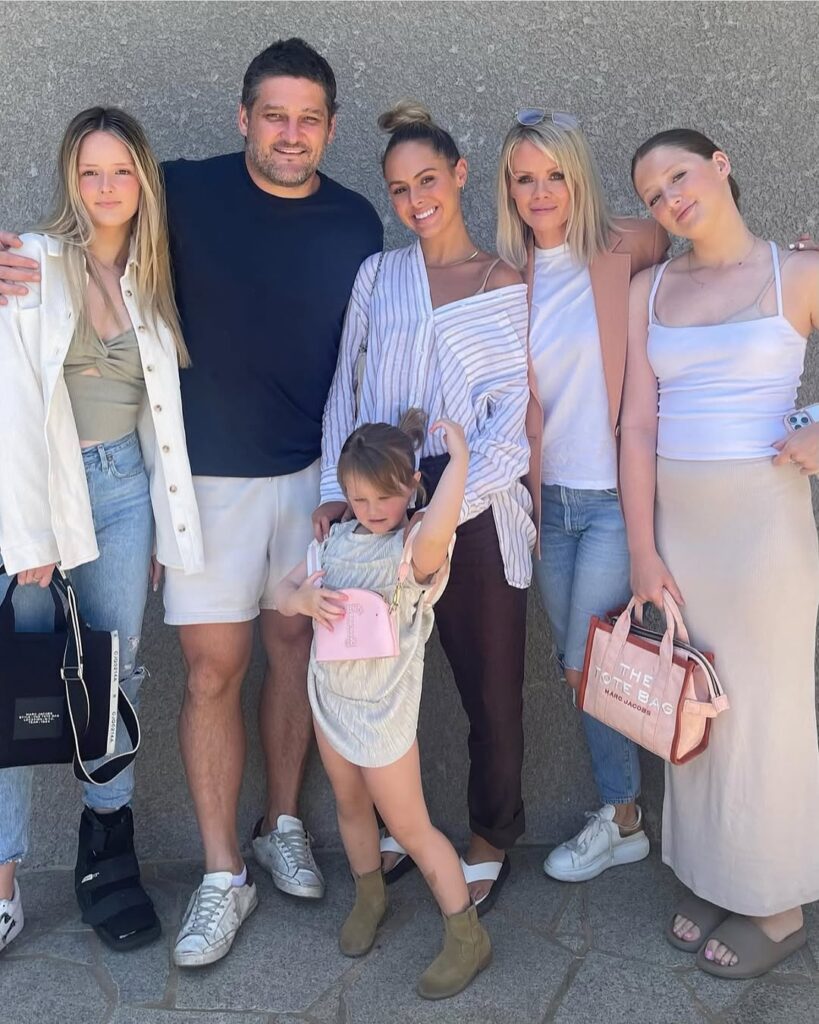
Asked what he would tell his younger self, the Fev of the late ’90s who was drafted into the AFL system as a 17-year-old still in high school, he takes a moment to consider. “That’s a really good question, but a tough one because I always say I’ve got no regrets. I wouldn’t be where I am now if I didn’t go through that stuff, but I guess I would tell myself not to hold things in.”
He remembers the pressure of trying to find his place in a locker room filled with alpha personalities, of not wanting to “step on anyone’s toes by saying anything wrong.” As a result, he often stayed quiet. “No one really talks about their feelings at a footy club,” he says. “That’s still pretty prevalent today. You don’t speak about stuff outside of footy. So to have some conversations with people about how I was feeling and forming a stronger bond would’ve done me some good.”
Looking ahead, Fevola wants to be part of the cultural shift that ensures other young athletes and young men don’t go through what he did without support. His message to dads doing it tough is simple: find someone to talk to.
“Speak to your wife, your partner, your husband. Alex has been a massive support to me. God knows what I would’ve done if I didn’t have her,” he says. “Beyond that, look to the rest of your family – your siblings, your kids, your parents – and if that’s not possible, then go to your friends. Just find someone to talk to and start those conversations.”

National Family Roast day is July 20. To learn more about Medibank Family Roast and play the game online visit www.familyroast.com.au, or head to a Medibank retail store to collect the physical card game.




